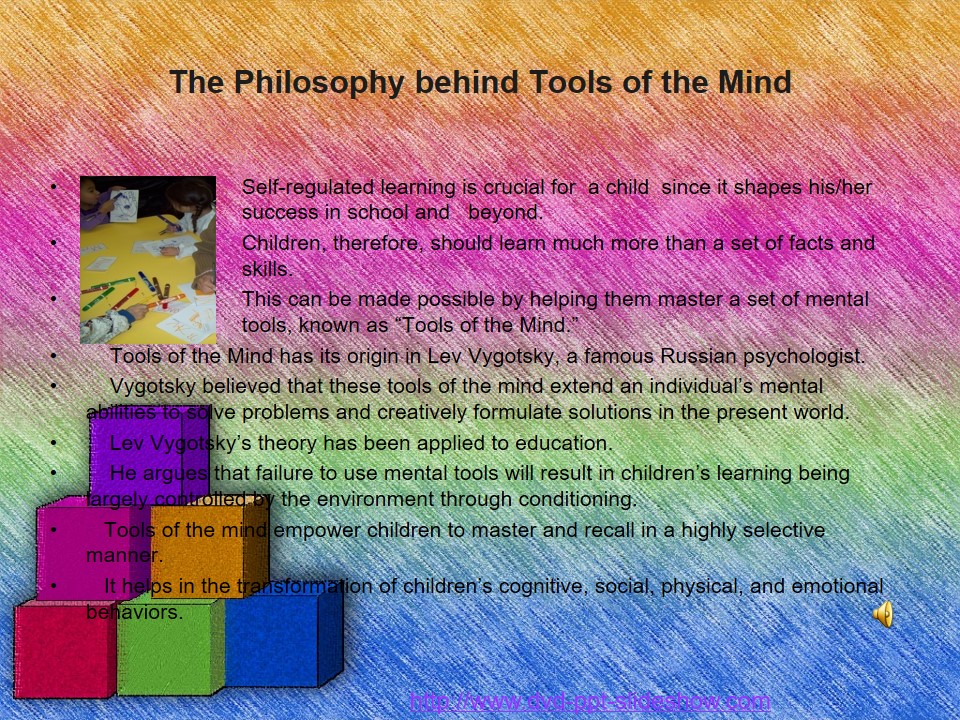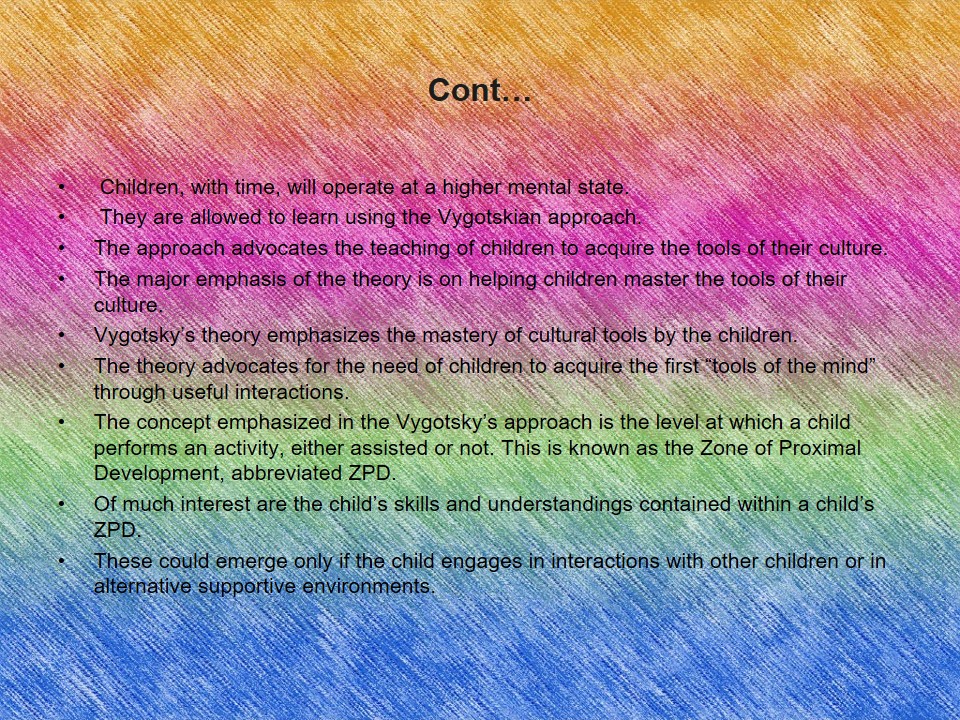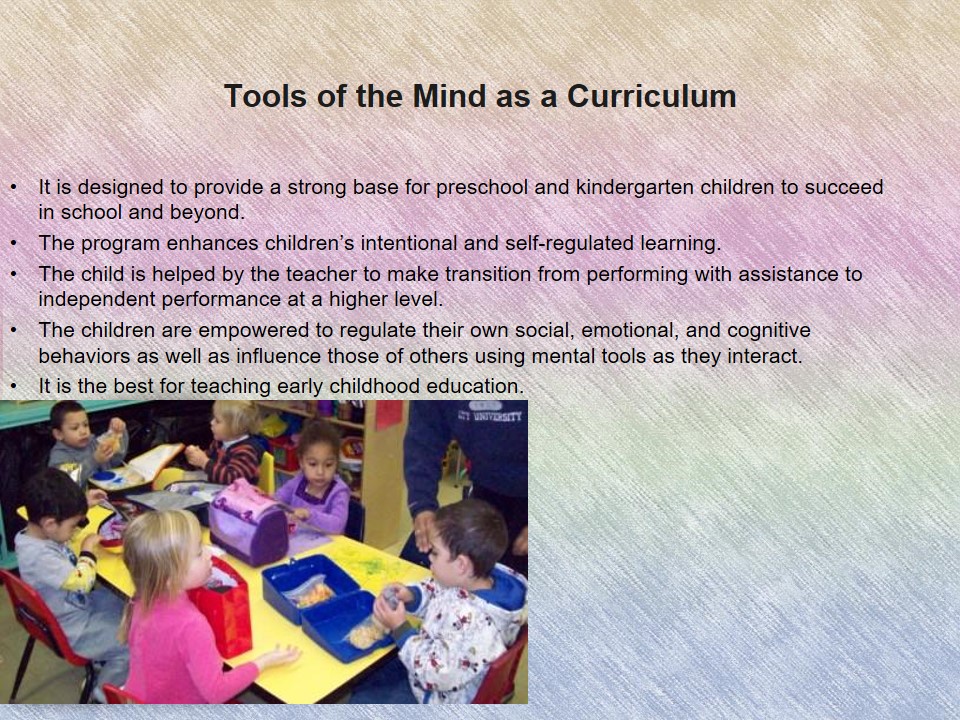- Self-regulated learning is crucial for a child since it shapes his/her success in school and beyond.
- Children, therefore, should learn much more than a set of facts and skills.
- This can be made possible by helping them master a set of mental tools, known as “Tools of the Mind.”
- Tools of the Mind has its origin in Lev Vygotsky, a famous Russian psychologist.
- Vygotsky believed that these tools of the mind extend an individual’s mental abilities to solve problems and creatively formulate solutions in the present world.
- Lev Vygotsky’s theory has been applied to education.
- He argues that failure to use mental tools will result in children’s learning being largely controlled by the environment through conditioning.
- Tools of the mind empower children to master and recall in a highly selective manner.
- It helps in the transformation of children’s cognitive, social, physical, and emotional behaviors.
- Children, with time, will operate at a higher mental state.
- They are allowed to learn using the Vygotskian approach.
- The approach advocates the teaching of children to acquire the tools of their culture.
- The major emphasis of the theory is on helping children master the tools of their culture.
- Vygotsky’s theory emphasizes the mastery of cultural tools by the children.
- The theory advocates for the need of children to acquire the first “tools of the mind” through useful interactions.
- The concept emphasized in the Vygotsky’s approach is the level at which a child performs an activity, either assisted or not. This is known as the Zone of Proximal Development, abbreviated ZPD.
- Of much interest are the child’s skills and understandings contained within a child’s ZPD.
- These could emerge only if the child engages in interactions with other children or in alternative supportive environments.


Tools of the Mind as a Curriculum
- It is designed to provide a strong base for preschool and kindergarten children to succeed in school and beyond.
- The program enhances children’s intentional and self-regulated learning.
- The child is helped by the teacher to make transition from performing with assistance to independent performance at a higher level.
- The children are empowered to regulate their own social, emotional, and cognitive behaviors as well as influence those of others using mental tools as they interact.
- It is the best for teaching early childhood education.
